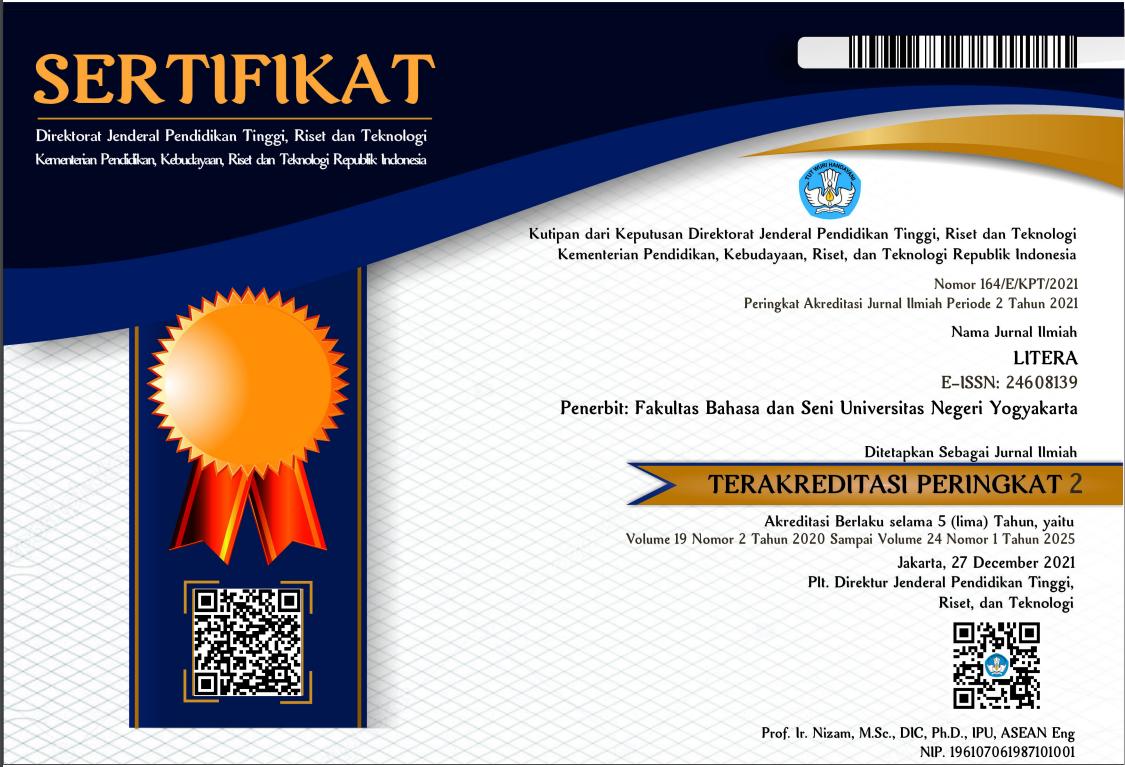POLA ASUH ANAK DALAM SERAT PALIATMA
Vol. 4 No. 1: LITERA JANUARI 2005
Articles
Downloads
by KGPAA Mangkunagara IV.
The source of the data was Serat Paliatma, consisting 18 stanzas in pupuh
Dhandhanggula (the Dhandhanggula song). The data were collected by means
of orthographic transliteration, translation, paraphrase, and careful reading
and rereading. The data were analyzed descriptively. The data validity was
assessed through semantic validity. The data reliability was assessed through
reproducibility.
The research findings show that there are two child-rearing patterns in Serat
Paliatma, namely (1) the one related to religious norms, and (2) the one related to
values in life. The former includes acceptance to what is given, gratefulness, and
devotion. Meanwhile, the latter covers asceticism, affection, unity, obedience, loyalty
to the country, and responsibility.
Key words: child-rearing pattern, serat, pupuh
Nurhidayati, N. (2005). POLA ASUH ANAK DALAM SERAT PALIATMA. LITERA, 4(1). https://doi.org/10.21831/ltr.v4i01.4887
Downloads
Download data is not yet available.
























